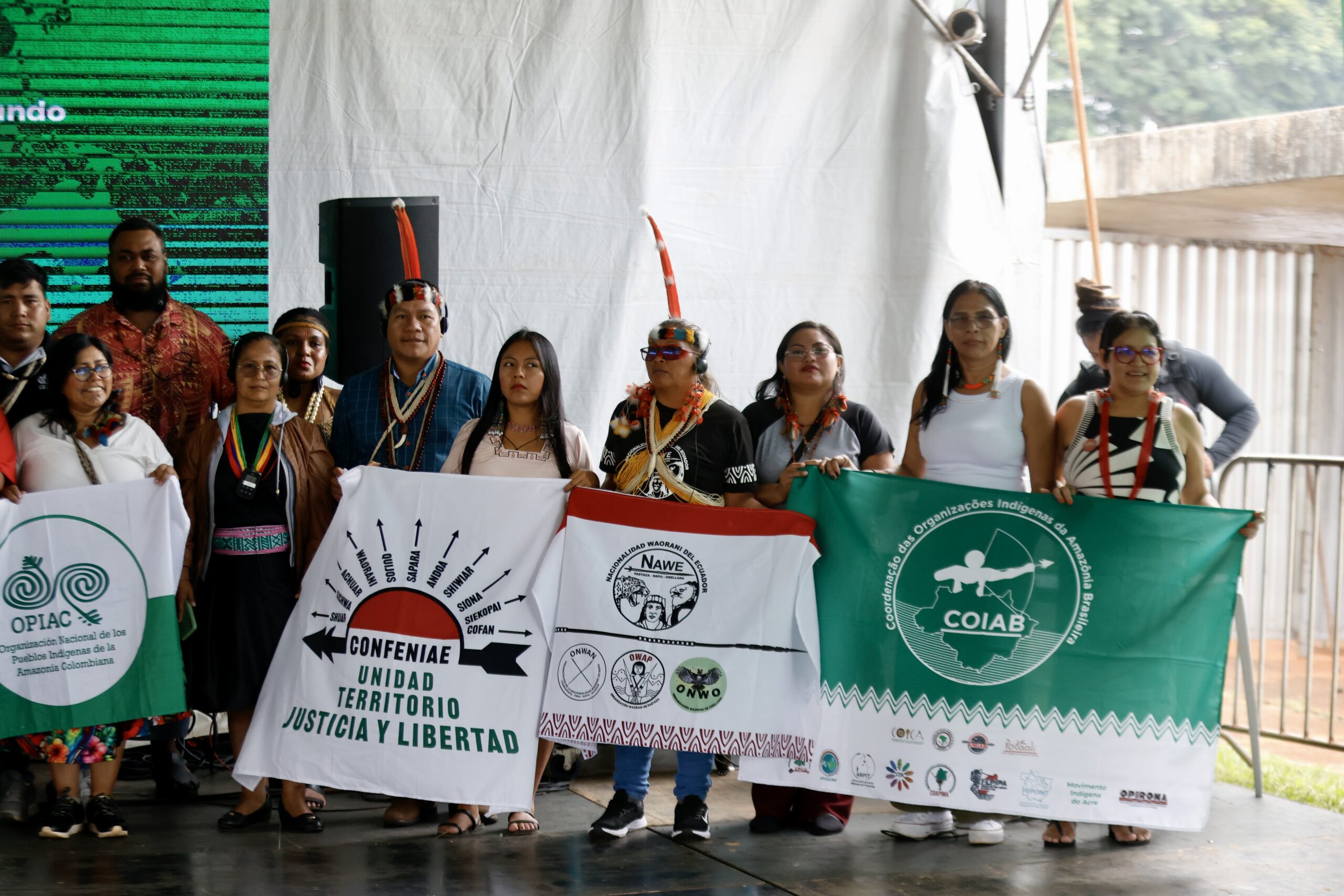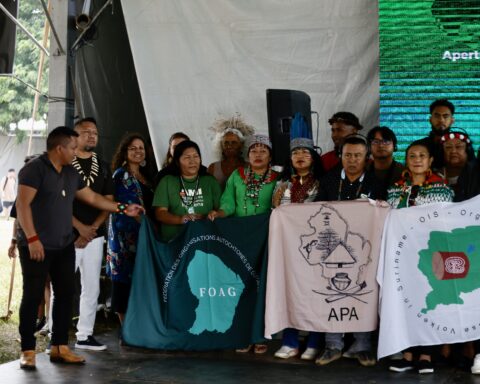Ahead of the UN climate negotiations in Brazil later this year, hundreds of Indigenous leaders, environmental campaigners, and youth movements have mobilized in Brasília, demanding an end to the fossil fuel era and calling for a just and equitable energy transition.
During the opening day of the Acampamento Terra Livre (ATL), or Free Land Camp, the largest gathering of Indigenous peoples in Brazil, a strongly worded letter from civil society was handed to Brazil’s COP30 Presidency.
André Corrêa do Lago, COP30 President-designate, and Marina Silva, Brazil’s Minister of Environment and Climate Change, received the letter. Both were in attendance alongside Sonia Guajajara, Minister of Indigenous Peoples.
The letter, coordinated by global climate organization 350.org, has garnered over 180 signatures from Indigenous, youth, and environmental organizations worldwide.
It urges the COP30 leadership to commit to a rapid, just transition away from fossil fuels and prioritize Indigenous leadership in global climate decisions.
The global campaign, themed *”We Are the Answer”, is being led by Indigenous movements and affirms the centrality of Indigenous rights and land demarcation in combating the climate crisis. The event also witnessed the announcement of a new declaration of alliance among Indigenous peoples from the Amazon, the Pacific, and Australia.
George Nacewa, a Pacific Climate Warrior and 350.org community organizer from Fiji, emphasized the urgency of the moment.
“This is a critical time for our people; the age of deliberation is long past. We need this COP to be the one that spearheads the Just Energy Transition from words to action. This week, I’ve heard the wisdom of the custodians of this land and shared the wisdom of our own oceans.
“It is now up to the Brazil COP presidency if they heed this Indigenous climate leadership, or lock us into climate catastrophe,” he said.
Similarly, Toya Manchineri, General Coordinator of the Coordination of Indigenous Organizations of the Brazilian Amazon (COIAB), warned that COP30 risks failure if Indigenous authority is not reflected in the outcomes.
“We demand an end to the era of fossil fuels and a just energy transition. The COP30 president said that the conference must be a turning point this will only happen when the climate authority of Indigenous peoples is heard and incorporated into decisions. The answer is us, all of us.”
In a show of solidarity, Melina Laboucan-Massimo, Founder and Executive Director of Sacred Earth, expressed support for the ATL participants and called for transformative climate action that centers Indigenous rights and justice.
“COP30 represents a unique opportunity to encourage global cooperation on a fossil fuel phase-out and renewable energy uptake. In this energy transition, we must ensure that our communities are not further excluded by climate policies or harmed by extractivism. Indigenous wisdom and voices must be respected at COP30 and beyond,” he said.
As the countdown to COP30 in Belém, Brazil, begins, the international spotlight is turning to whether the host country will set a precedent by integrating Indigenous leadership into the core of climate governance, especially in a region as climate-vulnerable as the Amazon.
For Nigeria and the broader African continent, the calls from Brasília echo the demands of local communities resisting extractive industries and climate injustice.
With similar struggles for land, rights, and clean energy transitions ongoing in the Niger Delta, and across Africa, the Indigenous-led movement in Brazil could serve as a blueprint for bottom-up climate action.
By Dare Akogun






